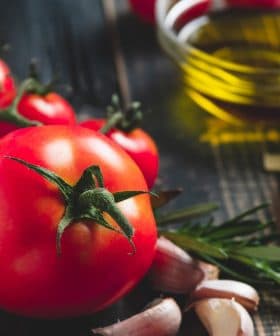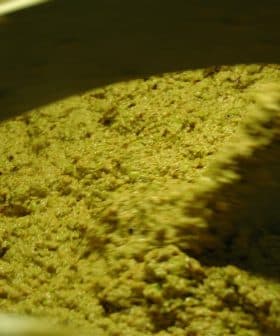Greeks Lament EU Decision That Allows Enriching Seed Oils With Phenols
Greek Parliament members criticized an EU decision that allows the use synthetic hydroxytyrosol as a seed oil additive.
The Greek Parliament discussed the European Commission’s decision to allow seed oils to be infused with phenols, which was requested by a Spanish biotechnology company and could have negative effects on Greek olive oil. This decision, effective since January 1, 2018, permits the addition of hydroxytyrosol to seed oils, with restrictions on usage and labeling requirements to inform consumers.
A recent session of the Greek Parliament brought up the fact that seed oils can be legally infused with phenols for the first time in the European Union.
Spyros Danellis, a member of the Greek Parliament, brought up the matter of the decision of the European Commission (2017/2373). With this decision, effective January 1, 2018, the Commission granted permission to a Spanish biotechnology company to enrich seed oils with phenols.
The decision, issued after a claim of a Spanish company, legitimizes adulteration and it will prove destructive for Greek olive oil.
Danellis said in his statement: “Since January 2018, the 2017/2373 decision has enabled polyphenols to be added to seed oils, and particularly hydroxytyrosol, which is known as one of the basic healthy substances of olive oil. The blending is allowed up to 215 mg per kilo, very close to the phenols that olive oils should contain.”

Spyros Danellis
“The decision, issued after a claim of a Spanish company, legitimizes adulteration and it will prove destructive for Greek olive oil.”
The specific implementing decision stipulates that hydroxytyrosol can be added to fish and vegetable oils, and also to spreadable fats. It also imposes restrictions that the new products should not be used for cooking, baking or frying, and should not be consumed by children under the age of three or pregnant and breastfeeding women. These restrictions must be written on the label of the product to inform consumers.
Before issuing the decision, the Commission asked the European Food Safety Authority (EFSA) to provide their scientific opinion on the safety of using synthetic hydroxytyrosol as a food additive. A panel of experts of EFSA examined the facts and concluded that the proposed use of the substance is safe, within the quantities and the restrictions mentioned above.
Danellis continued by presenting the possible repercussions of the decision: “The countries that produce seed oils, of which Spain is the leader, will now promote that seed oils enriched with hydroxytyrosol and a‑tocopherol (which is actually vitamin E and is already allowed as an additive) can fight oxidation, something that was an important sign of superiority of olive oil…The decision opens up a new era for olive oil and seed oils in the international markets.”
With the EU regulation 432/2012, the antioxidant properties of olive oil were highlighted. The regulation enabled standardized olive oil to bear a health claim on its label saying that polyphenols can contribute to the protection of blood lipids from oxidative stress.
This health claim can be used only for olive oils containing at least 5 mg of hydroxytyrosol or its derivatives, and it is recommended that a person should consume a minimum of 20 mg of olive oil a day for the claim to be effective. It is worth noting that olive oil contains many phenolic compounds, with the most important being oleuropein, hydroxytyrosol, and tyrosol.
Olive oil is also a source of a certain vitamin like a‑tocopherol, Danellis mentioned. To achieve this nutritional claim, food must fulfill some other requirements contained in the 432/2012 regulation.
The 2017/2373 implementing decision of the European Commission is valid only for the specific company it is addressed to, and it limits the usage of the seed oils enriched with synthetic hydroxytyrosol to other than cooking. Nevertheless, it is a first step towards changing some constants of the edible oil industry.
Experts in Greece warned that, following the global trend of duplicating natural substances and elements to use in drugs and food, this could be only the beginning of adding more human-made compounds to seed oils to threaten the established position of olive oil.









